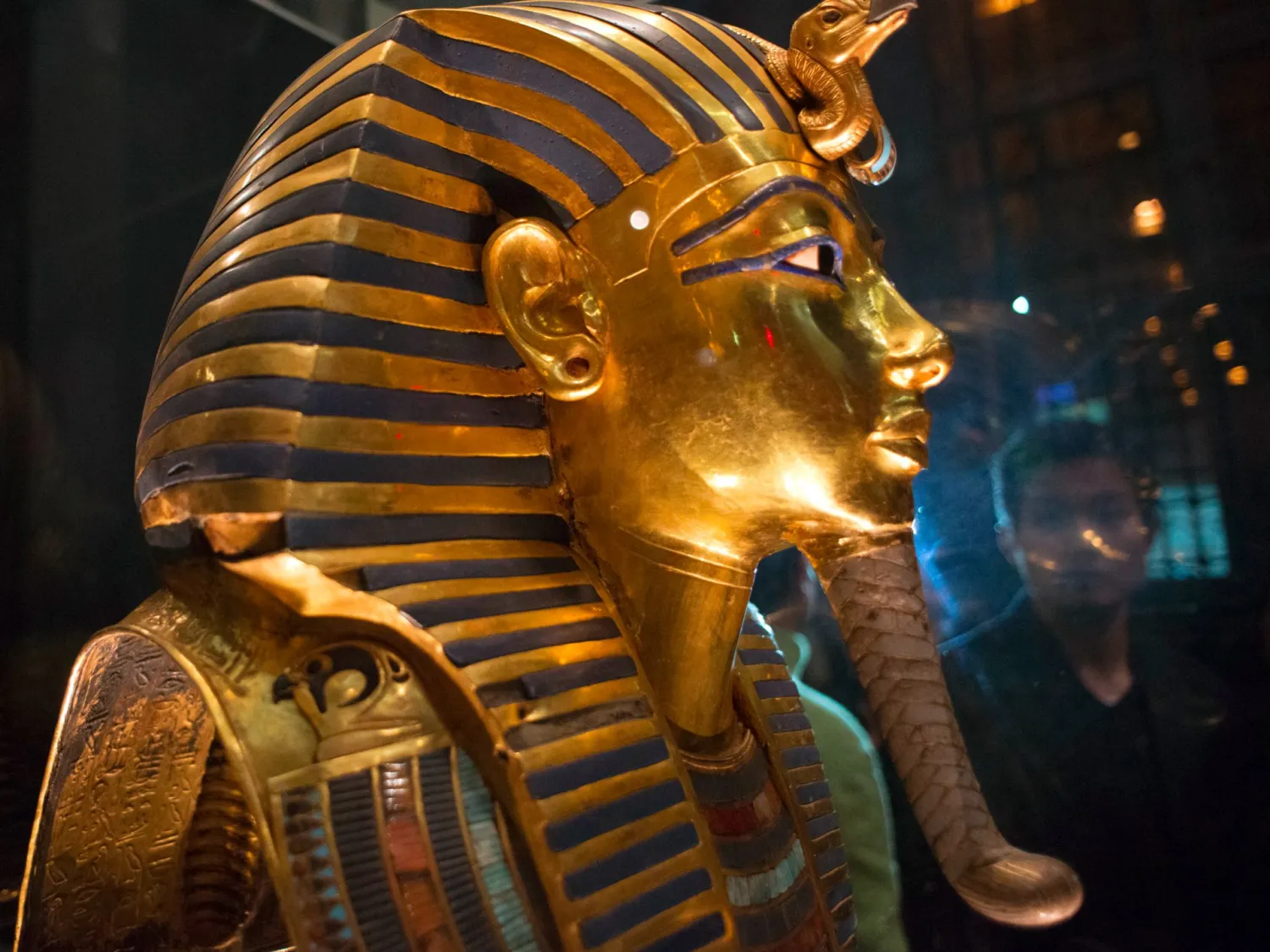A military chariot that belonged to Egypt’s King Tutankhamen was moved on Sunday to Cairo’s Grand Egyptian Museum.
The chariot, made from Lebanese cedar wood and animal skin, had been on display at Egypt’s Military Museum in Cairo since 1987. But antiquities authorities have decided to put all artefacts found in the young king’s tomb in Luxor in 1922 on display together at Cairo’s Grand Egyptian Museum.
“The military chariot that arrived today from the military museum is King Tutankhamen’s sixth chariot,” said museum director Tarek Sayed Tawfik.
He said six chariots were found at Tutankhamen’s tomb, some for ceremonies, some for hunting and one lighter and faster than the rest for war. This had been kept at the Military Museum.
“For the first time, inside the Grand Egyptian Museum, these chariots will be displayed together,” Tawfik said.
Authorities are pinning hopes on the new museum, near the Pyramids, to draw in tourists to the country.
King Tut ruled Egypt as pharaoh for 10 years until his death at age 19, around 1324 B.C.
The military chariot was taken in boxes from the museum at the Cairo Citadel, to its new home just beyond the Great Pyramids of Giza, which is set to be the world’s largest archaeological museum.
Later, the Antiquities Ministry announced that tests had debunked a theory that there are hidden chambers next to the tomb of Tutankhamun in the Valley of the Kings.
Experts used ground penetrating radar (GPR) which provided "conclusive evidence of the non-existence of hidden chambers adjacent to or inside Tutankhamun's tomb," the ministry said in a statement.
Experts have been divided over the existence of a concealed chamber behind the tomb, which some believe could be the final resting place of the lost Queen, Nefertiti.
The Ministry said that months of studies by Italy's Polytechnic University in Turin has shown that no such chamber exists.
"The studies ... have shown that no chambers exist, or even an indication of any threshold or door frames, which contradicts the previous theory that had assumed the existence of passages or chambers adjacent or inside the burial chamber of King Tutankhamen," the statement quoted Mostafa Waziri, secretary-general of the Supreme Council of Antiquities, as saying.
In 2015, the antiquities minister said that there was a "90 percent" chance that something was behind the walls of Tutankhamen's tomb after an initial reading of radar imaging suggested such a chamber existed.









